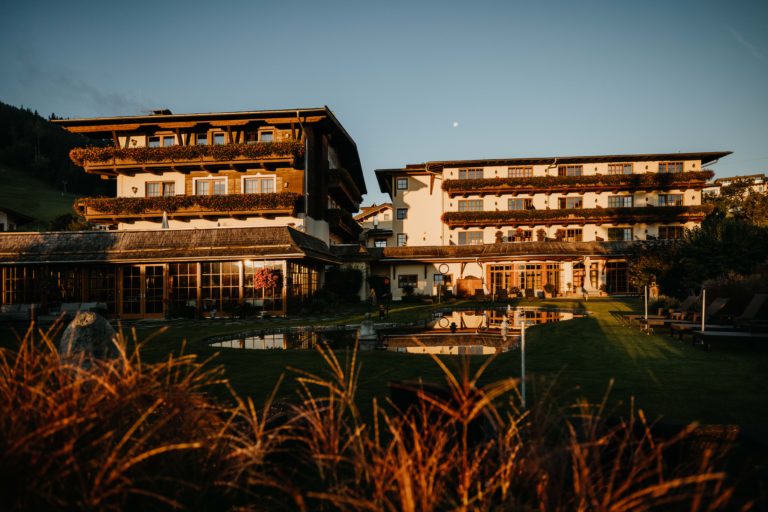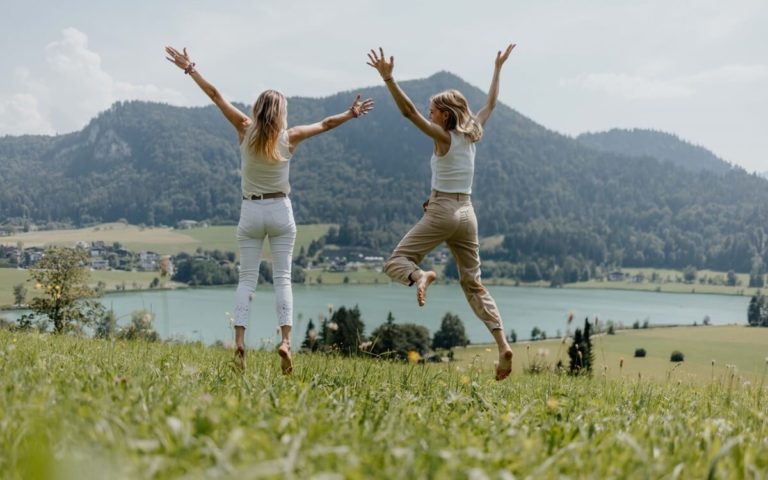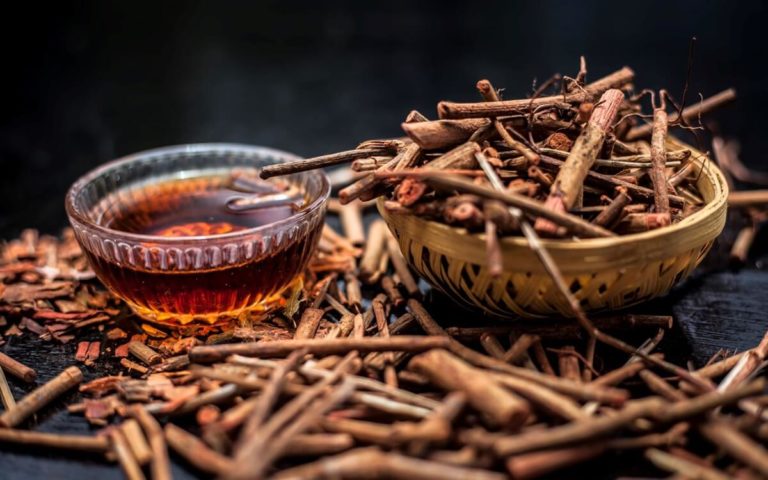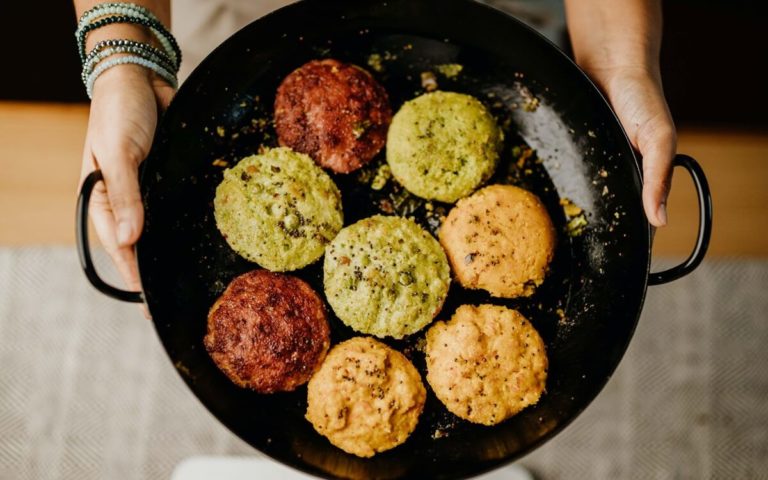In Ayurveda, ojas is the life energy that influences our vitality, health and strength. It is therefore essential for healthy living and ageing. You can build up ojas through healthy routines - we show you how to do this in this article.
Ojas - meaning and why it is central to your vitality
In Ayurveda, Ojas (pronounced Odschas ) is considered the finest essence of our food, our experiences and our way of life. It translates as 'radiance' and stands for the natural radiance that is achieved through physical, mental and spiritual health. It is the life energy behind our immune system, cellular health, mental clarity and spiritual stability.
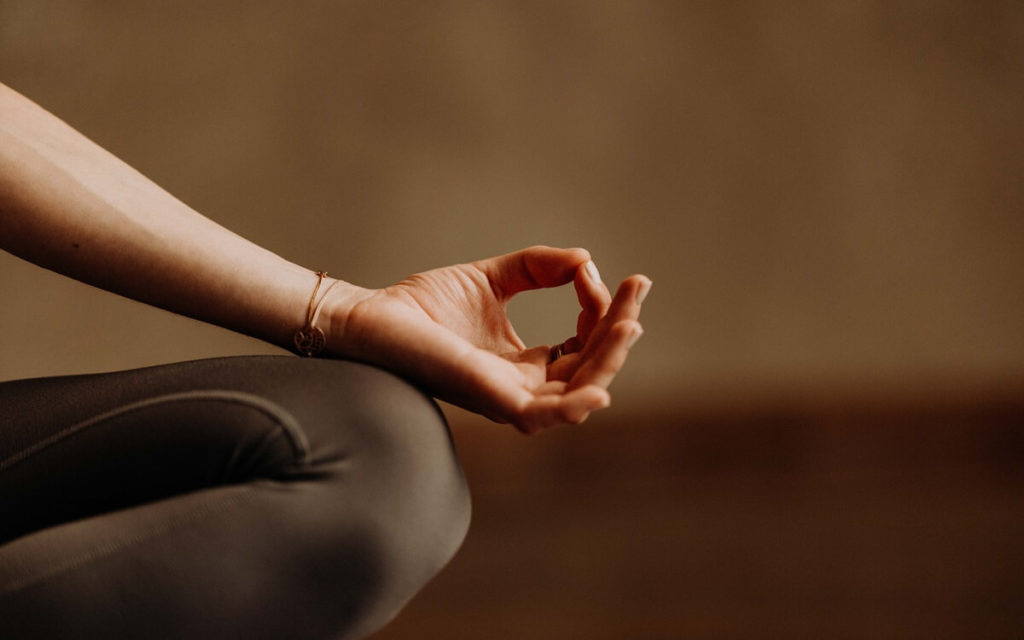

When Ojas is strong, we are resilient, radiant, calm and full of zest for life. It is the key to natural longevity - a biological shield against stress, ageing and degeneration. A healthy person produces ojas continuously - through good digestion, deep rest, emotional balance and nourishing routines.
Dr. Sinop emphasizes:
"When Ojas is strong, not only are our cells protected - our mental and emotional stability also benefits. Ojas is a measurable expression of inner health."
Building Ojas: Why this is the original answer to longevity
Longevity is the buzzword of the moment - from ice chambers and fasting protocols to genetic analysis. But what modern trends often only promise superficially is rooted in thousands of years of Ayurvedic knowledge: True longevity begins within - with ojas.
European Ayurveda®, developed at the Sonnhof Ayurveda Resort, combines the traditional Indian art of healing with modern Western lifestyle medicine. The concept of Ojas - the subtle essence of life - is at the heart of this system. It describes a force that combines physical vitality, emotional resilience and spiritual radiance.
The experts at the Sonnhof - Dr. Alaettin Sinop (specialist in general medicine & lifestyle medicine), Ayurveda doctor Sharma Gaurav and Ayurveda doctor Deepa Naik - apply the knowledge of Ojas individually to the needs of each guest.
Ayurvedic nutrition for cell protection and regeneration
What we eat influences how we age. In Ayurveda, only what we digest well can produce ojas. An Ayurvedic diet is therefore precisely tailored to the needs of your dosha type and supports your body exactly where it needs it. An Ayurveda food table can help you in everyday life.
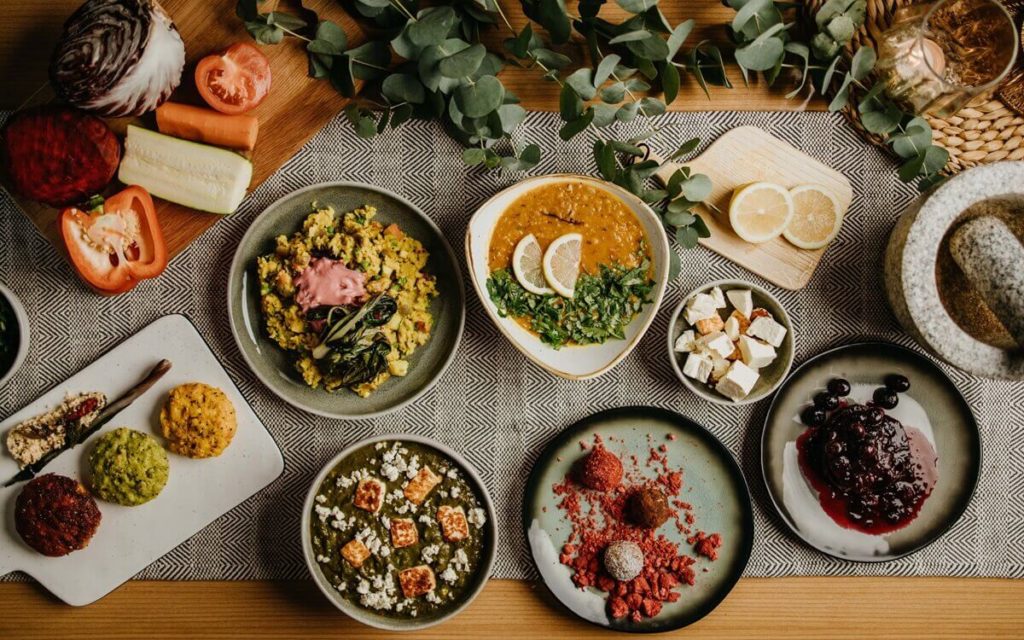

Deepa Naik adds:
"Nutrition is one of the most effective methods of building health at a cellular level. Especially nourishing, sattvic food is crucial."
Ojas-promoting foods:
The following foods are particularly suitable for all dosha types to build up ojas:
- Boiled organic milk with saffron and ghee
- Warm cereal porridge such as oats, amaranth or rice with spices
- Sweet fruit, dates, almonds
- Ghee as a cell protection fat
- Adaptogenic spices such as turmeric, cinnamon, cardamom
These foods not only nourish the body, but also the deepest cell structure. They have an antioxidant, regenerative and anti-inflammatory effect - perfect for a strong immune system.
Our tip: Ayurvedic superfoods such as chyavanprash are powerful ojas boosters.
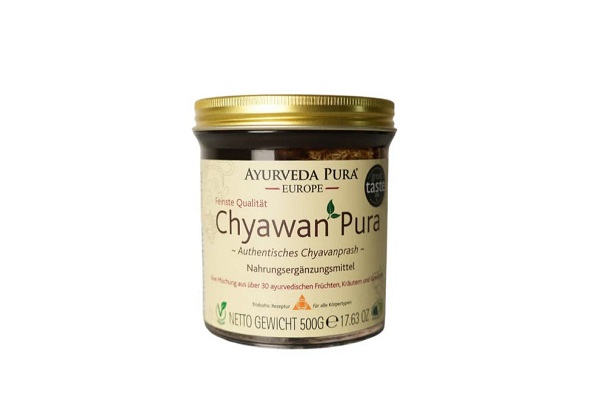

Discover Chyavanprash now in our European Ayurveda® online store
Chyavanprash is a true superfood and is known as a traditional Ayurvedic dietary supplement. It is particularly rich in vitamin C, amino acids and minerals. Try it for yourself now!
Rasayana herbs for more vital energy
Rasayanas are the rejuvenating agents of Ayurveda - herbal mixtures that specifically build up ojas, protect cells and strengthen the immune system. These remedies are an integral part of the therapies at Sonnhof.
You can also take Ayurvedic herbs and medicinal plants according to your individual constitution to bring your doshas into balance.
Sharma Gaurav explains:
"Rasayana herbs act like a natural cell therapy - they promote regeneration and prolong vitality."The top 3 Rasayana herbs:
- Ashwagandha - reduces stress, improves sleep, strengthens adrenal glands
- Amalaki (Amla) - rich in vitamin C, has a strong antioxidant effect
- Triphala - Supports digestion, detoxification and cell communication
3 rituals to strengthen Ojas: self-care with an effect
Ojas can be strengthened not only through nutrition, but also through conscious living. Daily rituals in particular, as practiced in European Ayurveda®, promote the connection between body, mind and soul - the basis for regeneration and cell protection. We show you three simple Ayurveda rituals that you too can incorporate into your daily routine.
1. abhyanga - the daily oil massage
A daily Ayurvedic massage not only has a relaxing effect, but can also relieve tension and reconnect you with your body. Abyhanga is an Ayurvedic full-body massage with individually tailored oils.
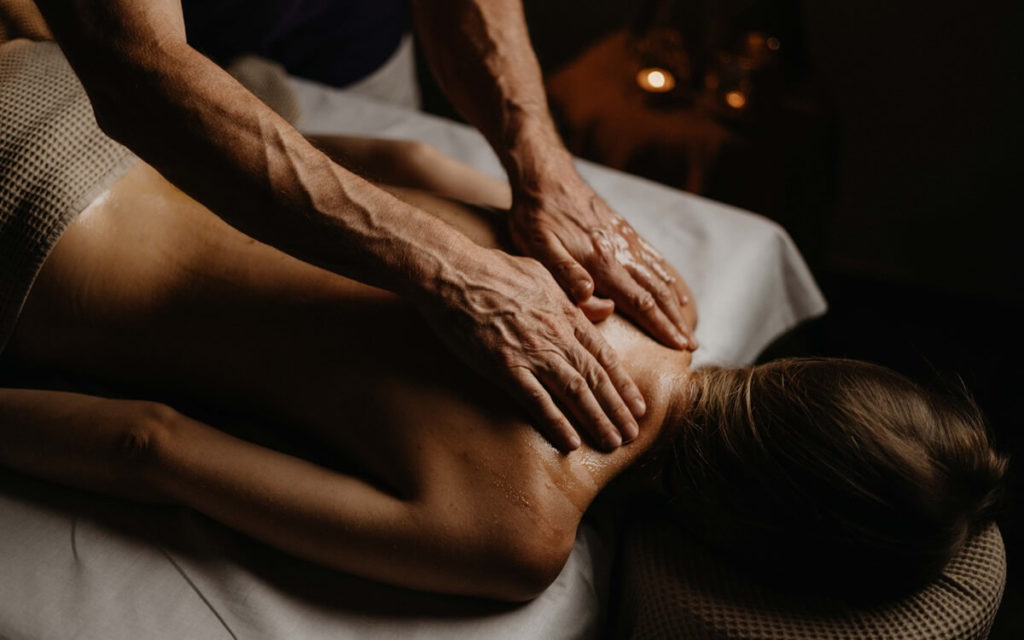

It is particularly suitable for balancing stress, physical and mental exertion and for regenerating the body. It is also particularly recommended by our expert Deepa Naik for strengthening Ojas.
An Abhyanga massage has the following positive effects:
- Warms and nourishes the skin
- Calms the nervous system and dissolves inner barriers
- Promotes detoxification and lymphatic cleansing
The massage is best performed with Vata oil or another Ayurvedic massage oil. These oils have a particularly nourishing effect and the added herbs have a balancing effect.
2. pranayama - breathing exercises for cell energy
Pranayama is conscious abdominal breathing and an important breathing exercise that is also practiced in yoga. Through conscious breathing, it gives you strength and brings body and mind together.
It also promotes relaxation and allows you to let go of negative feelings or stress. In the long term, your breathing will become deeper and you will be able to cope better with stressful situations in everyday life and feel better in the long term.
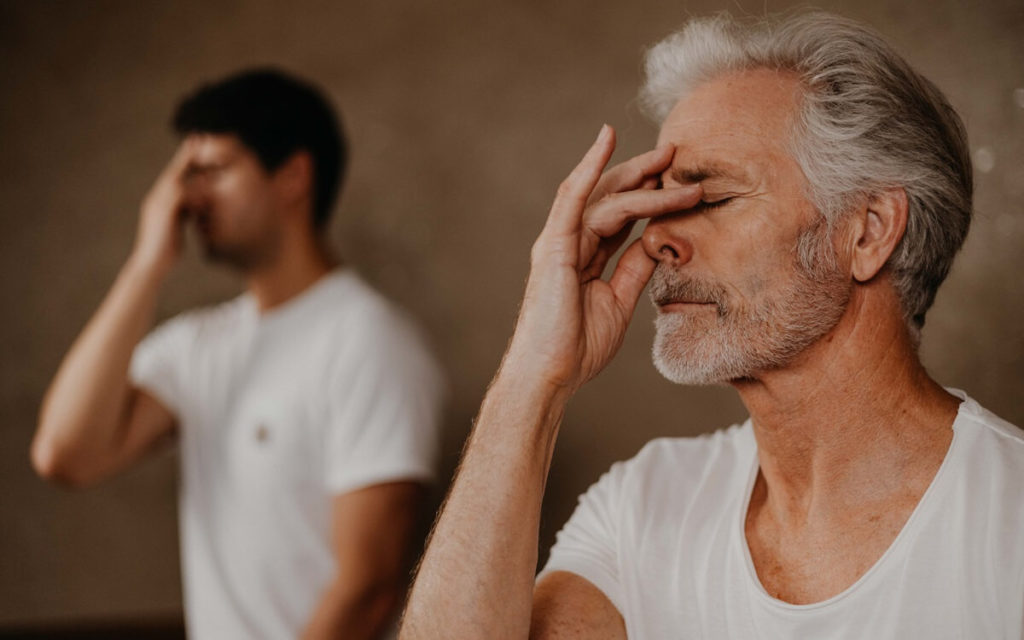

There are different variations of pranayama breathing. Two of them are
- Nadi Shodhana: also known as alternate breathing, balances both hemispheres of the brain
- Kapalabhati: also known as fire breathing, activates the metabolism and cell renewal
In Nadi Shidhana, alternate breathing, you breathe in and out alternately through the left and right nostril. The other is gently closed with the hand. This technique cleanses the body's energy channels (nadis) and ensures greater balance and concentration.
Kapalabhati is also known as fire breathing, which involves breathing in passively and gently and then exhaling actively and quickly - often through the mouth. It is also one of the cleansing exercises (kriyas) and purifies and revitalizes the body.
3. regular sleep routine
Too little sleep and bad habits in the evening are known to promote the ageing process and can encourage illness. A healthy and regular sleep routine is therefore very important to promote ojas.


Even simple routines can help you get restful sleep. If you have trouble falling asleep, meditation exercises to help you fall asleep or Ayurvedic herbs can help you calm down. The following evening rituals are particularly important:
- Regular sleep between 22:00 and 06:00
- Digital relief in the evening
- Herbs such as Brahmi or lavender support the process of falling asleep
Tip: The Inner Calm capsules from the European Ayurveda® Shop can also help you with sleep problems.
Conclusion: Longevity begins on the inside - with Ojas
If you want to live Ayurveda Longevity, start with the care of Ojas. This subtle life essence is the breeding ground for your cellular health, emotional resilience and inner radiance. The team at Ayurveda Resort Sonnhof - led by Dr. Sinop, Deepa Naik and Sharma Gaurav - demonstrates with its holistic approach how ancient wisdom and modern science can be combined.
With a conscious diet, powerful herbs and healing rituals, you can strengthen your life energy, slow down the ageing process and protect your health in the long term. You can find more information and suitable products in the European Ayurveda® Shop.
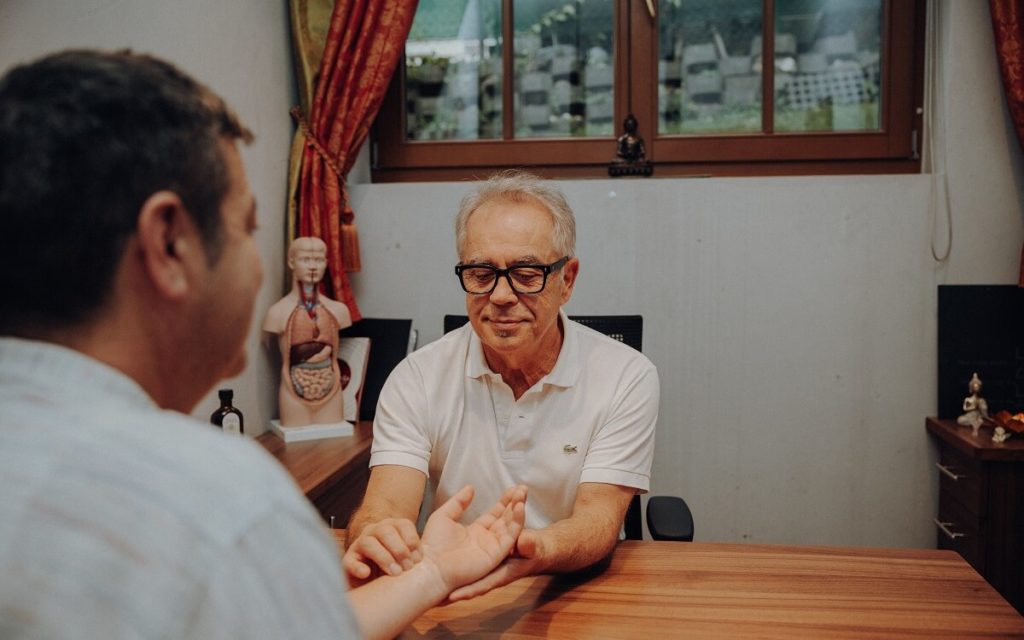

Epigenetics and European Ayurveda®: genes are not destiny
Epigenetics investigates which external factors can influence our genes. After all, your genes do not determine your entire life. You can promote a healthy life into old age through lifestyle, diet, thinking and emotions!

